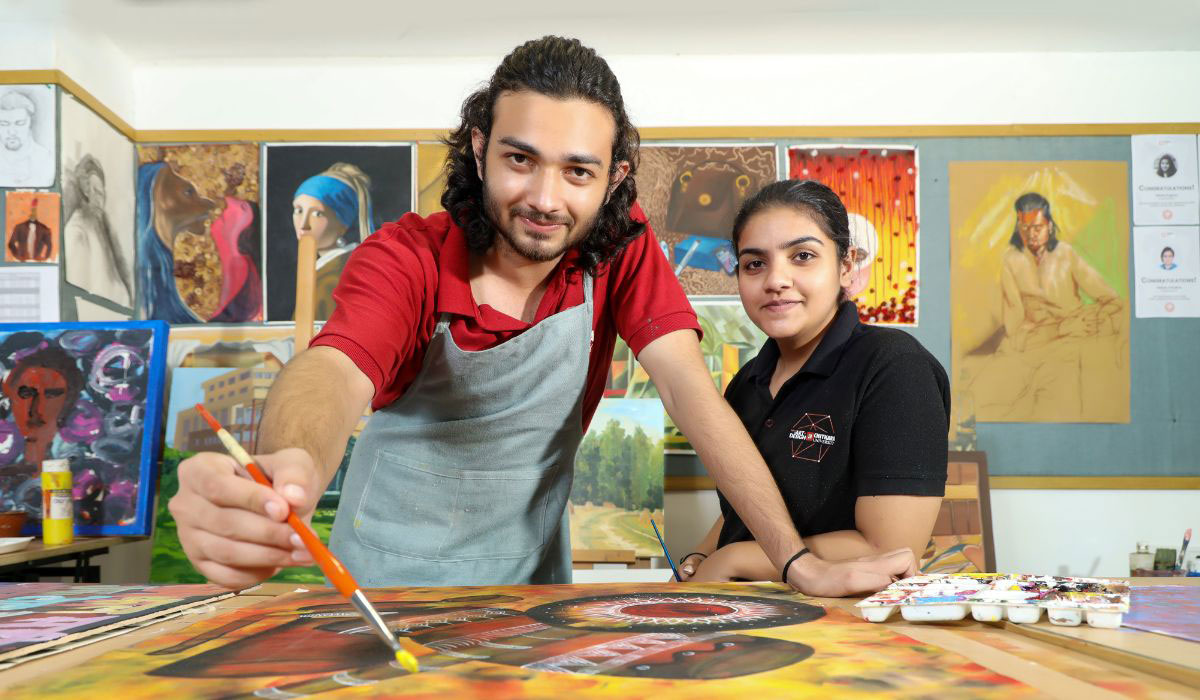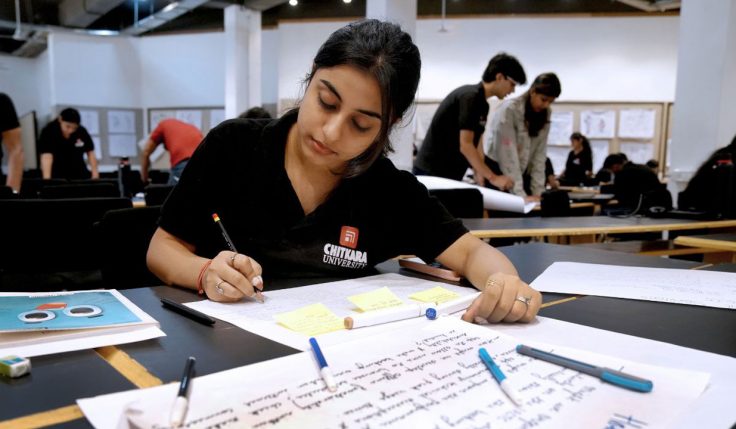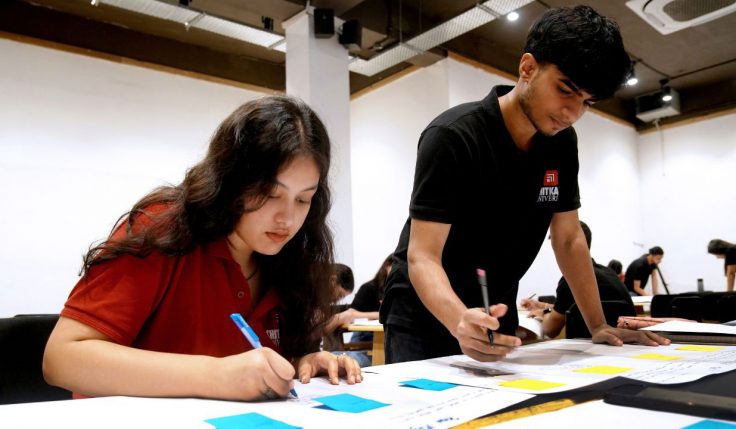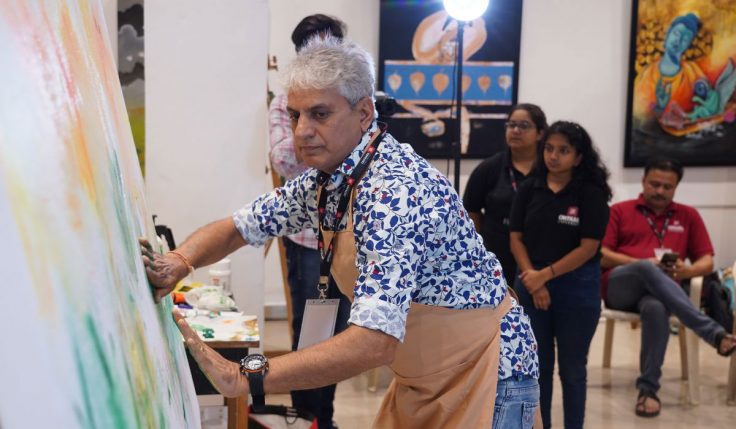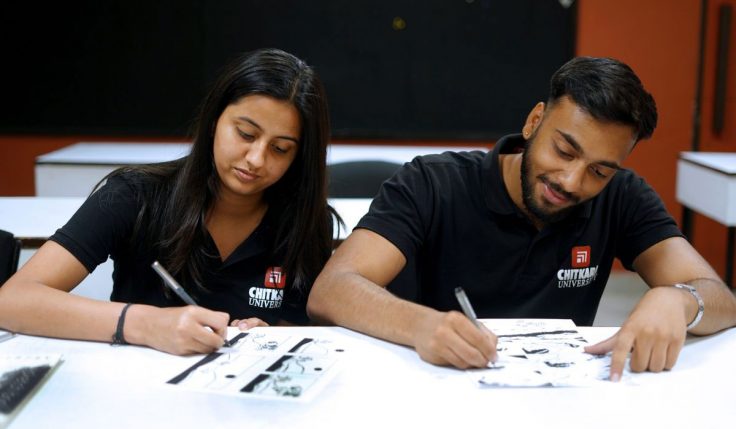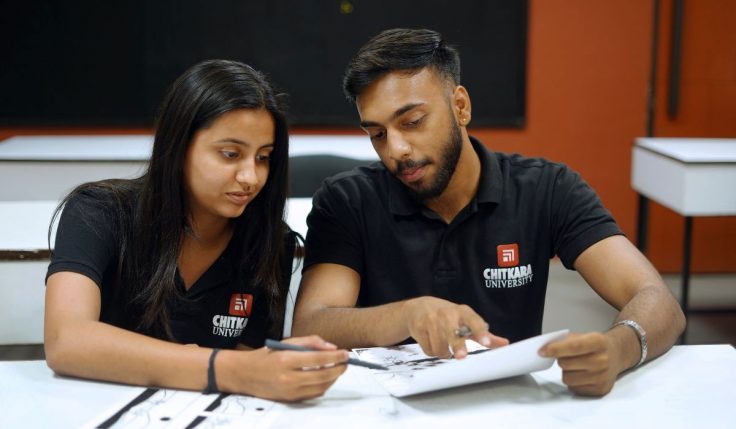Due to their utility and employment possibilities, STEM areas (Science, Technology, Engineering, and Mathematics) are frequently prioritised when it comes to schooling. However, a fine arts education offers a wealth of benefits that extend beyond the canvas or the stage. In this blog post, we’ll look at why fine arts education is more important than you would realise and how it can help people become more creative, adaptive, and well-rounded.
Nurturing Creativity and Innovation
A fine arts education is a breeding ground for creativity and innovation. It inspires people to rethink their assumptions, consider novel options, and think creatively. Students have the ability to communicate their thoughts, feelings, and viewpoints in original and unconventional ways using a variety of media, including painting, sculpture, music, dance, and theatre. This fosters a mindset that is essential in an increasingly complex and rapidly changing world, where innovative thinking is highly sought after.
Developing Skills in Problem-Solving and Critical Thinking
Engaging in the arts develops critical thinking and problem-solving skills. Artists are often faced with challenges that require them to analyze situations, explore multiple perspectives, and find creative solutions. This capacity for creative problem solving and critical thought can be applied to a variety of spheres of life, such as academics, interpersonal interactions, and career pursuits. A fine arts education equips individuals with the skills to adapt and find innovative solutions to complex problems.
Enhancing Communication and Expression
A platform for dialogue and self-expression is provided by the arts. Through visual arts, music, or performance, individuals learn to convey emotions, stories, and ideas in powerful and meaningful ways. Fine arts education hones communication skills, enabling individuals to effectively express themselves, connect with others, and foster empathy. These skills are valuable not only in artistic pursuits but also in everyday interactions, professional presentations, and leadership roles.
Encouraging Cultural Appreciation and Diversity
A fine arts education exposes students to diverse cultural perspectives and traditions. Through studying various art forms, students gain an appreciation for different cultures, histories, and aesthetics. This exposure fosters tolerance, empathy, and understanding, promoting a more inclusive and culturally diverse society. The ability to appreciate and respect diverse perspectives is crucial in a globalized world, where collaboration and intercultural communication are essential skills.
Boosting Emotional Intelligence and Well-being
Art has the power to touch the soul and evoke emotions. Participating in the arts helps people develop their emotional intelligence by enabling them to explore and comprehend their own feelings as well as empathise with those of others. Self-awareness and empathy like these support mental and general health. A fine arts education provides an outlet for emotional expression, stress relief, and personal growth, helping individuals navigate the complexities of life.
Fostering Collaboration and Teamwork
Collaborative initiatives in the arts frequently bring together people from many backgrounds and fields to produce something cohesive and lasting. Fine arts education instills the value of collaboration and teamwork, teaching individuals how to work effectively in groups, respect diverse opinions, and leverage the strengths of each team member. These collaborative skills are transferable to various professional settings, where teamwork and cooperation are crucial for success.
Cultivating Perseverance and Resilience
The artistic process is rarely smooth sailing. To overcome obstacles, self-doubt, and setbacks demands commitment, tenacity, and resilience. A fine arts education teaches individuals the importance of perseverance and the value of learning from failures. These traits play a crucial role in cultivating resilience, adaptability, and a growth mindset, all of which are necessary for success in any sector.
Developing Observation and Attention to Detail
In the pursuit of creating art, individuals develop a keen sense of observation and attention to detail. Artists develop their ability to examine the world around them, picking up on details, hues, textures, and shapes that other people frequently overlook. This improved capacity for observation and focus on detail can be used in a variety of fields, such as design, problem-solving, and scientific research, where a thorough approach is required for accuracy and originality.
Cultivating Empathy and Social Awareness
The arts have the power to evoke empathy and increase social awareness. Through exploring different perspectives and narratives in literature, theater, or visual arts, individuals develop a greater understanding of human experiences, struggles, and triumphs. This social awareness and empathy cultivate a sense of duty and a desire to help bring about positive social change. Artists often use their creative platforms to address social issues and inspire meaningful dialogue, creating a more compassionate and inclusive world.
Enhancing Aesthetic Appreciation and Sensibility
A fine arts education cultivates aesthetic appreciation and sensibility. By studying and creating art, individuals develop an eye for beauty, balance, and harmony. This heightened aesthetic awareness can be applied to various domains, such as design, architecture, fashion, and marketing. Having a keen sense of aesthetics allows individuals to create visually appealing and engaging experiences, products, and environments that resonate with others.
Encouraging Risk-Taking and Innovation
Artists have a reputation for pushing the envelope, taking chances, and questioning the existing quo. A fine arts education encourages individuals to embrace experimentation, think outside the box, and explore unconventional ideas. A spirit of curiosity and an openness to new possibilities are fostered by this environment of innovation and risk-taking. It instills the confidence to question norms and find creative solutions, qualities that are highly valued in entrepreneurial endeavours and advancing industries.
Fostering Personal Growth and Self-Reflection
Participating in the arts gives one a platform for introspection and personal development. People have the chance to investigate their own identities, values, and beliefs through the creative process. Introspection and self-discovery are made possible by artistic expression, which promotes personal development, boosts self-assurance, and deepens self-understanding. Relationships, job decisions, and general well-being are all positively impacted by this self-awareness and personal development.
Connecting Past and Present, Bridging Traditions
The arts connect generations and preserve cultural traditions by bridging the gap between the past and the present. Through a fine arts education, individuals gain an appreciation for the rich artistic heritage of different civilizations and time periods. This understanding of artistic traditions and history provides a context for contemporary artistic expression and allows for the reinterpretation and evolution of artistic forms. Artists can build on the past while still producing something fresh and timely for the present.
A fine arts education goes beyond developing artistic skills. It encourages risk-taking and innovation while fostering creativity, critical thinking, empathy, and aesthetic sensibility. Participating in the arts encourages personal development, societal awareness, and the acquisition of useful skills that are transferable to a variety of fields and occupations. Accept the worth of a fine arts education because it will improve your artistic skills and provide you the tools you need to succeed in a dynamic, linked society.
Chitkara University offers comprehensive Bachelor’s and Master’s programs in Fine Arts, providing students with an excellent platform to explore their artistic abilities and develop a strong foundation in various art forms. The Bachelor’s in Fine Arts program at Chitkara University encompasses a diverse curriculum that includes courses in painting, sculpture, graphic design, photography, and art history, among others. Through hands-on practical training and theoretical knowledge, students are equipped with the skills necessary to express their creativity effectively. The Master’s in Fine Arts program builds upon the undergraduate program and offers specialized study in areas such as painting, sculpture, printmaking, and applied arts. Students have the opportunity to engage in critical discourse, experimental projects, and collaborative ventures, further enhancing their artistic prowess. University’s Fine Arts programs are designed to nurture and empower aspiring artists, preparing them for successful careers in the art industry
Industry partners actively engage with Chitkara University by providing guest lectures, conducting workshops, and participating in student critiques. These partners also offer internship and placement opportunities, allowing students to apply their skills and knowledge in professional settings. By working closely with industry experts, Chitkara University ensures that its Fine Arts programs remain relevant, responsive, and aligned with the evolving needs of the art industry.
